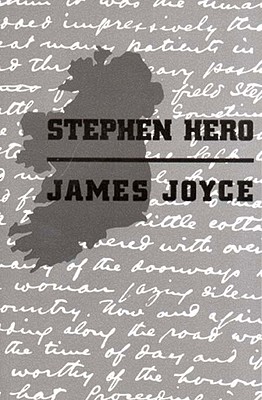APS TOGETHER
Day 4
Stephen Hero by James JoyceXVIII, pp. 69-75
January 15, 2022 by Belinda McKeon
This short chapter is in effect a vivid set-piece in which Stephen encounters an old classmate from Clongowes, the private boarding school run by the Jesuits at which Stephen was a student until his father could no longer avoid the bills. The old classmate, Wells, is now in training for the priesthood, something Stephen fails to notice at first when they meet in the street; “are you in mourning?” he asks the other man, quite seriously, of his black clothing. Wells laughs and tells him that he clearly doesn’t know his church when he sees it.
It’s not quite accurate, though, to say that Stephen and Wells “meet” in the street in this scene; rather, as Stephen is taking one of his evening strolls around the city, composing his forthcoming debate paper in his head (as he is doing, we might say, religiously during this period), he is grabbed from behind by someone on North Richmond Street and jolted out of his reverie. “Hello, Daedalus, old man, is that you?” Wells says “blatantly,” as Stephen gazes at this person, “a tall young man with many eruptions on his face” and tries to place him. Readers who recall the Clongowes scenes in Portrait may recognize him before Stephen does here; he is Wells, the Clongowes classmate who pushed Stephen into the “square ditch” in the schoolyard because Stephen would not swop his snuffbox for Wells’s “seasoned hacking chestnut.” Because “square ditch” sounds almost bucolic, I feel driven to clarify here that what Wells, the little fucker, pushed Stephen into in that scene was in fact a cesspool, a portion of the school sewer, and that Stephen became very ill as a consequence, ending up with a fever in the infirmary. Wells then, no doubt sensing a threat to his own reputation, apologized cravenly, and here he is, lording it around Holy Cross College in Clonliffe, preparing for all the luxuries and perks of life as a parish priest. The Clongowes sections didn’t survive in Stephen Hero, but we can relish this scene, in which Stephen watches the slimy seminarian try to appear learned, and attempt to downplay the strictures which the walls of the seminary place on his young life, and generally behave like an early twentieth century version of the priest character eventually created by the great Irish comedian Dermot Morgan. Stephen walks away from Father Cesspool newly aware of his own freedoms, and enjoying his “impulse of pity,” and having given us this wonderful vignette of dusk in a courtyard in Dublin where the self-important figures in soutanes look “criminal, almost fugitive” as they skirt along the narrow paths. What did you enjoy about this short chapter?
